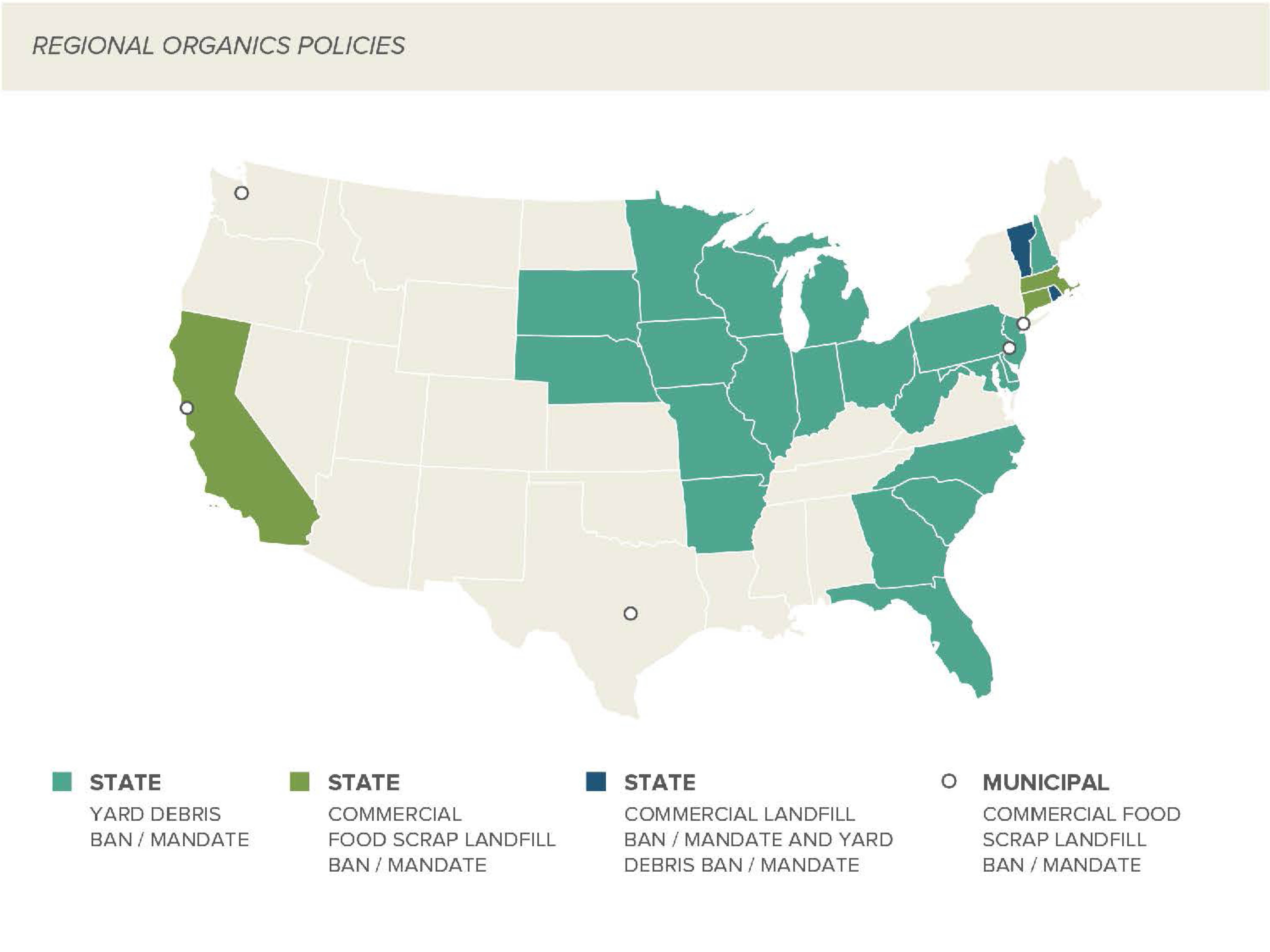Have We Reached the End?
Even after prevention measures, donations for human consumption and recycling to animal feed, there will be food scraps. So why not simply ship the scraps to the landfill?
“Food scraps that are buried in a landfill undergo anaerobic decomposition – as it decomposes it doesn’t receive oxygen and produces methane, a greenhouse gas,” says Hunt Briggs, RRS consultant and contributor to the ReFED: A Roadmap to Reduce Food Waste report. “In properly maintained composting situations, aerobic decomposition is achieved – oxygen is present and the byproduct is carbon dioxide.”
Hunt continues, “By utilizing composting and anaerobic digestion (AD), we create a closed loop, or circular economy, with end products including compost, fertilizer and energy.”
Now before anyone at the back of the room starts to fret about the mention of AD because of the methane byproduct – we’ll cover that in a minute.
According to the Roadmap, composting faces a number of issues including location, profitability, contamination, quality and climatic conditions. However, the report also provides several scenarios to overcoming barriers to recycling for municipalities, haulers and facility operators.
One of several action items from the report focused on expanding current yard waste composting programs to accept food waste. Food waste “requires additional carbon sources to reach an optimal mix necessary for healthy compost piles” – for example, yard waste.
Now back to AD. The Roadmap called out the byproducts of AD and how they can be part of that closed loop.
- Digestate
- Liquid fraction can be utilized as a biofertilizer
- Solid fraction can be composted
- Biogas – Consist of 60% methane that can be:
- Used to generate heat on-site
- Treated and fed into a natural gas pipeline
- Converted to compressed natural gas (CNG)
- Converted to electricity and heat
The Roadmap also notes that AD has some challenges: “The cost of capital is both critical to project economics and correlated to uncertainty in the supply of feedstock for the life of the project.” However, the report is quick to point out that only a small number of dairy farms are digesting manure, only 250 out of 51,000.
There are a few angles we could take here, but let’s say that sounds like quite the predictable feedstock for future AD installations.
Fourth in a four part series, this series aims to spotlight various aspects of the recently released report ReFED: A Roadmap to Reduce U.S. Food Waste.
Brief summary of the report development: The “Roadmap” took an analytical approach to assessing where food waste occurs and the economic potential of various solutions, then outlined 27 actionable solutions. The report was developed by consulting firms Deloitte Consulting LLC and RRS, with close collaboration from The Closed Loop Fund, MissionPoint Partners, and the Natural Resources Defense Council. ReFED also built an advisory board of leading organizations across public and private sectors. For more information about ReFED and the report, please visit www.refed.com.


